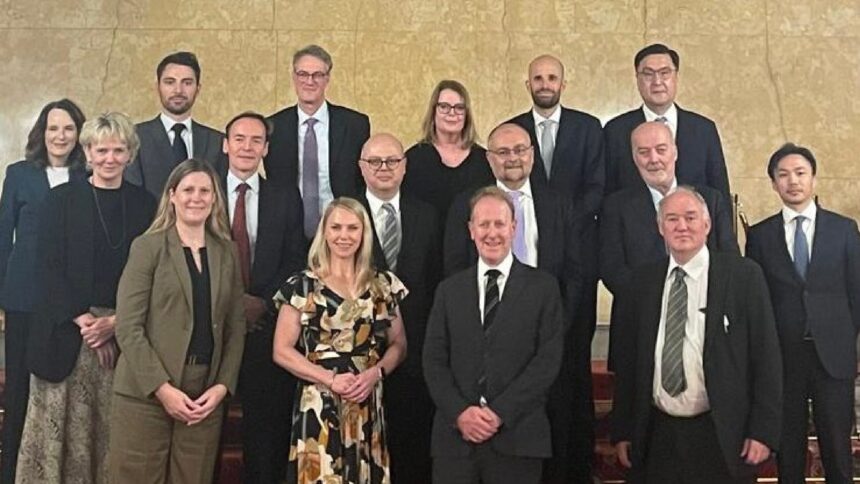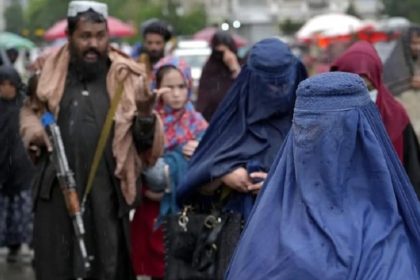RASC News Agency: At the conclusion of a two-day summit in London (29–30 September), representatives of the G7+ coalition issued a strong joint communique, asserting that Afghanistan’s future cannot be stable so long as its political order remains monopolized by the Taliban. Delegates stressed that genuine stability requires the establishment of an inclusive and representative government that respects the diversity of Afghanistani society.
The statement declared that “Afghanistan’s stability depends upon broad-based political participation and respect for pluralism,” while sharply urging the Taliban to demonstrate a more credible and responsible posture in its engagement with the international community. Yet, the very framing of this appeal underscored a persistent dilemma: despite repeated international calls, the Taliban continue to function as an isolated, authoritarian movement that substitutes repression for governance and violence for legitimacy.
Envoys from the United States, the United Kingdom, the European Union, and over a dozen other countries reaffirmed their commitment to the Afghanistani people, who remain ensnared in a multidimensional crisis economic collapse, political exclusion, and an escalating humanitarian emergency all consequences of Taliban mismanagement and authoritarian rule.
Delegates also addressed security concerns that extend far beyond Afghanistan’s borders. They pointed to the enduring threat of terrorism, the regional instability generated by forced migration, and the Taliban’s inability or unwillingness to dismantle extremist networks that continue to operate with impunity across the country. Participants urged closer cooperation with regional actors to confront these dangers, warning that inaction would further entrench Afghanistan as a hub of insecurity.
The communiqué highlighted the worsening humanitarian situation. Delegates expressed alarm over the devastation caused by the recent earthquake, the humanitarian strain triggered by the mass deportation of Afghanistani refugees from neighboring countries, and the urgent need to prepare for the harsh winter ahead. The statement underscored the indispensable role of the World Bank and the Asian Development Bank in sustaining critical services healthcare, education, and food distribution services that the Taliban regime has proven incapable of guaranteeing.
The summit also welcomed the latest United Nations report proposing a “comprehensive approach” to Afghanistan. Delegates voiced hope that the UN Secretary-General and the newly appointed Special Envoy would succeed in unifying international efforts under a coherent strategy something seen as essential given the Taliban’s refusal to compromise on its authoritarian grip.
Attending the meeting were representatives from Australia, Canada, France, Germany, Italy, Japan, South Korea, Denmark, Norway, Switzerland, Turkey, the European Union, along with the United States and the United Kingdom. Georgette Gagnon, the UN’s acting envoy to Afghanistan, briefed participants on the most recent developments in the country, noting the deteriorating humanitarian and political climate.
Since 2021, the G7+ coalition comprising leading industrialized nations alongside the EU and international partners has convened regularly to confront the Afghanistan crisis. Its communiqués have consistently condemned the Taliban’s systematic assault on women’s rights, its repression of civil society, and its obstruction of humanitarian agencies. Beyond issuing statements, the coalition influences humanitarian aid budgets, financial institution policies, and regional counterterrorism strategies, placing it at the center of international policymaking on Afghanistan.
Ultimately, the London summit reaffirmed what has become abundantly clear: Afghanistan cannot move toward stability, prosperity, or legitimacy under the Taliban’s suffocating rule. The regime’s obsession with monopolizing power has hollowed out governance, paralyzed the economy, and isolated the country from the global community. Until the Taliban relinquish their exclusionary grip and allow for a genuinely inclusive political process, Afghanistan’s future will remain one of unfulfilled potential and deepening despair.






